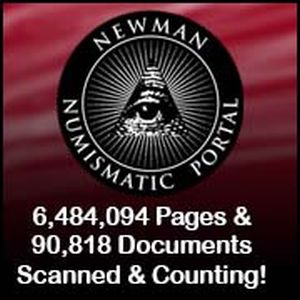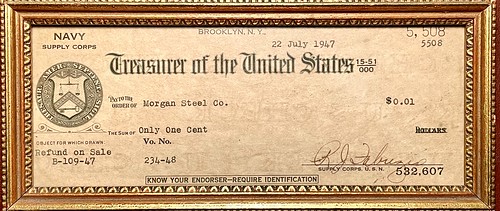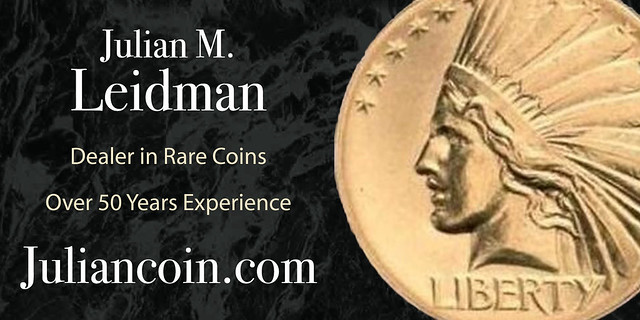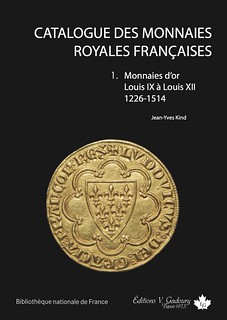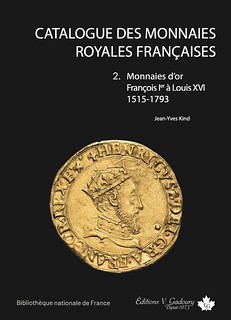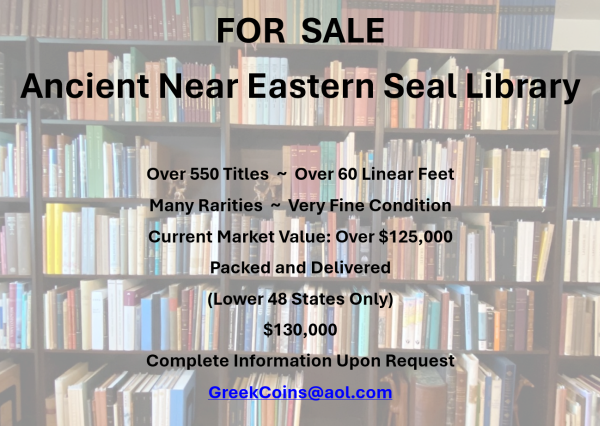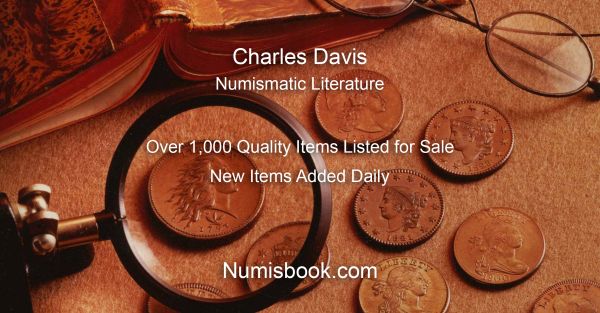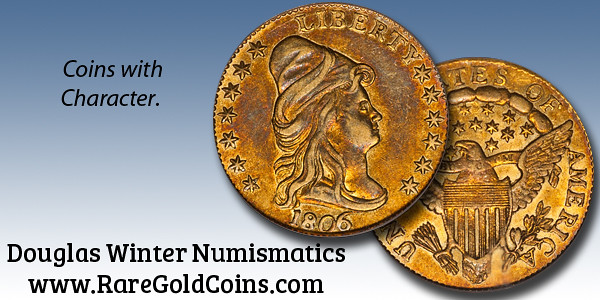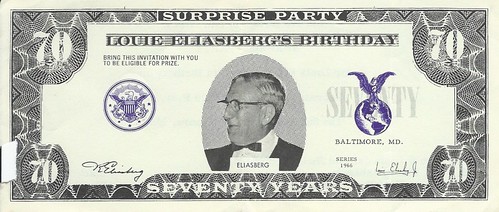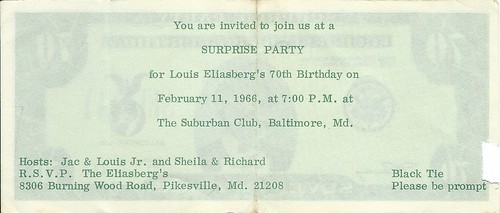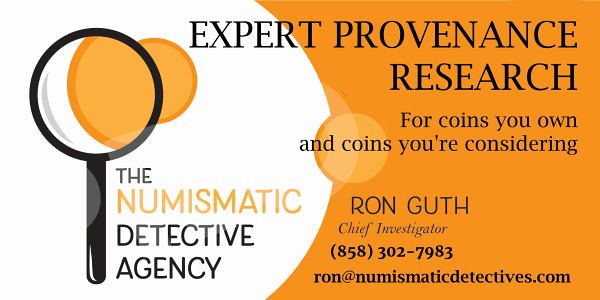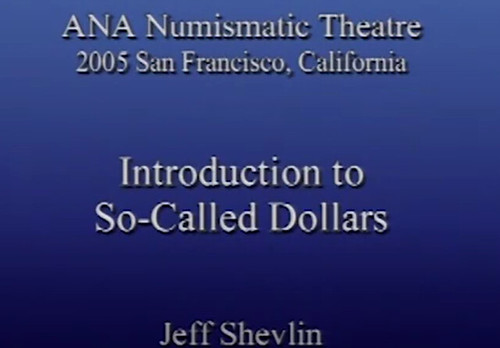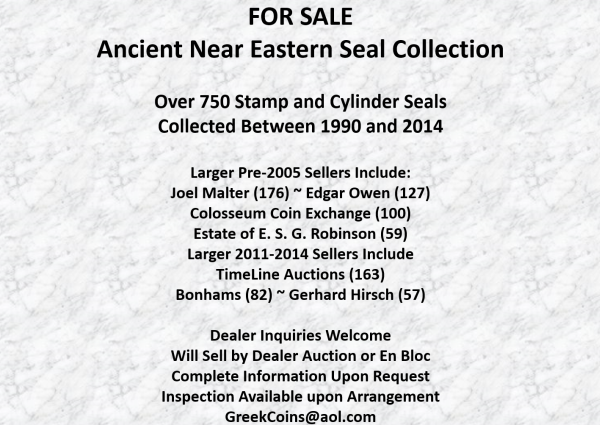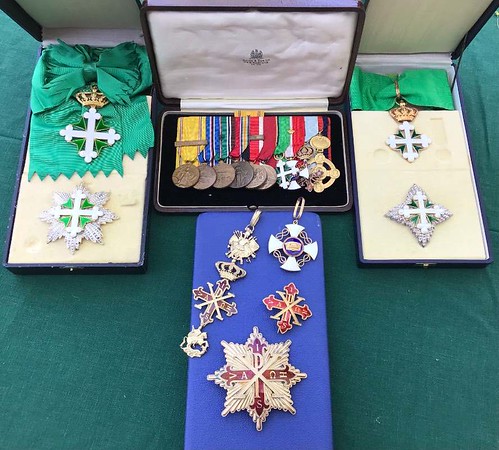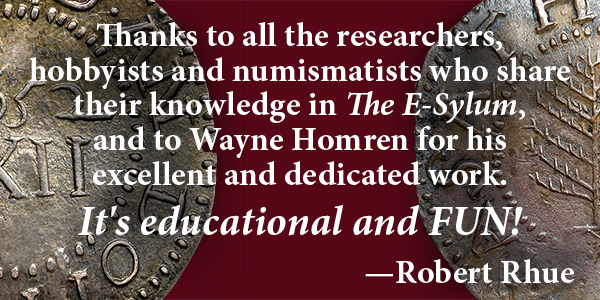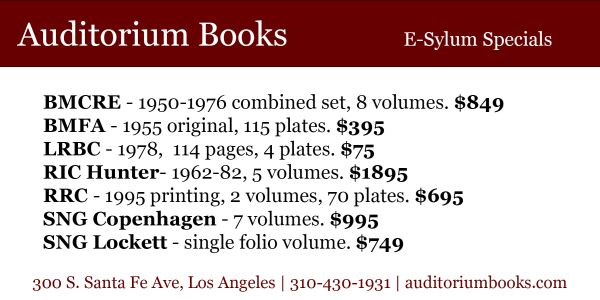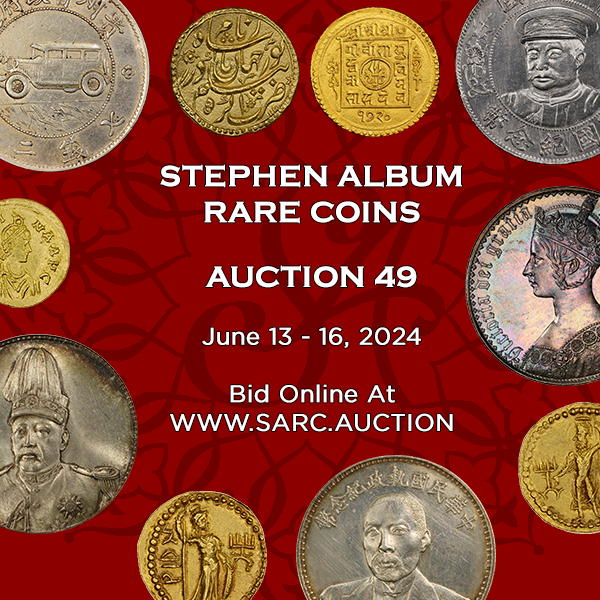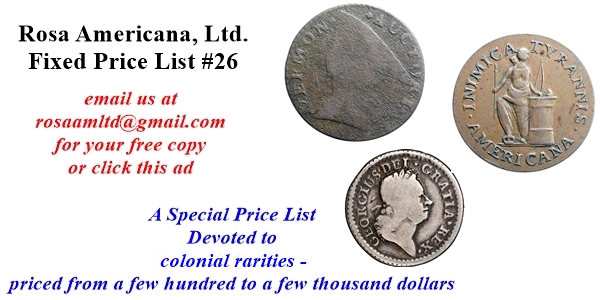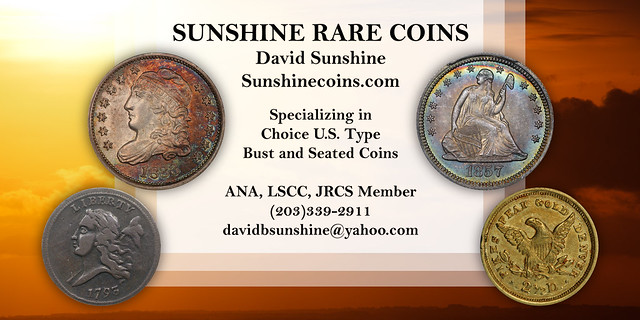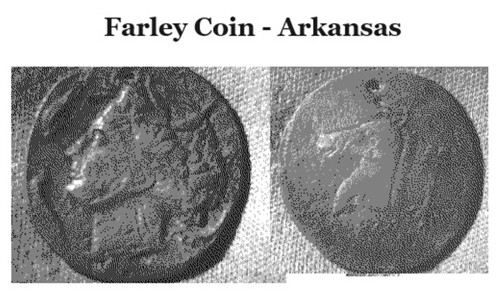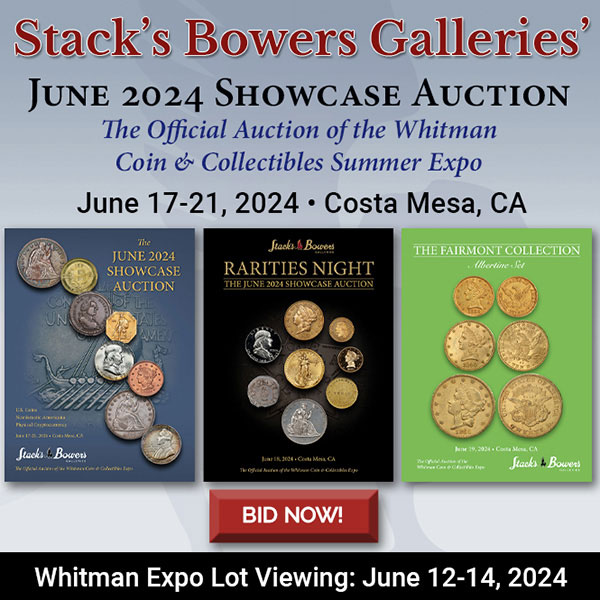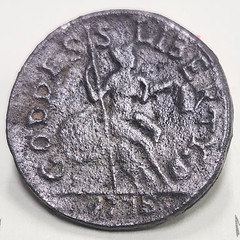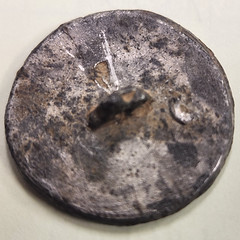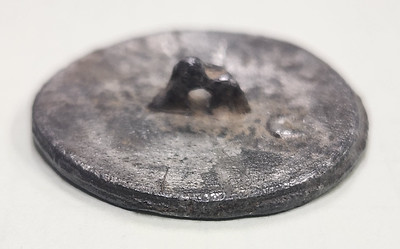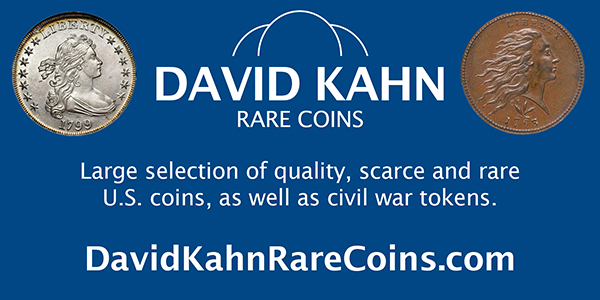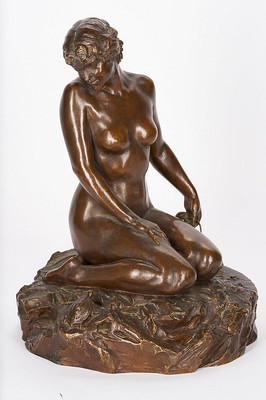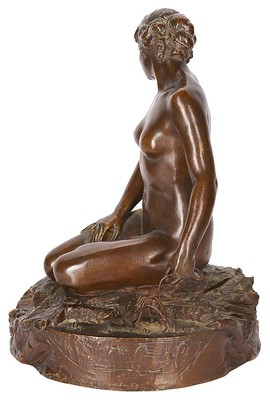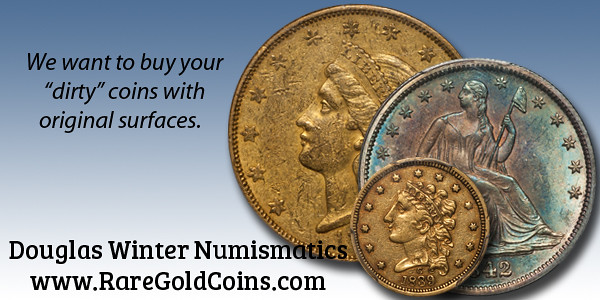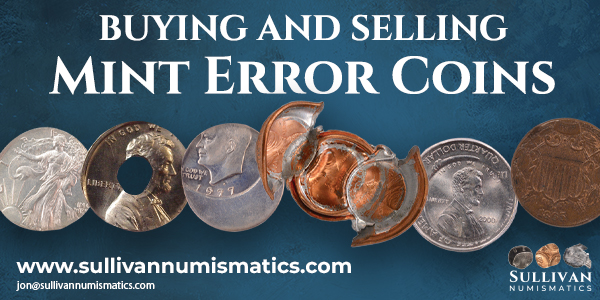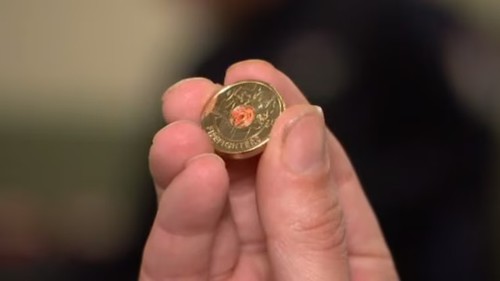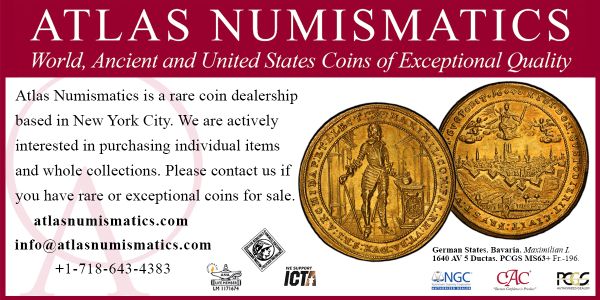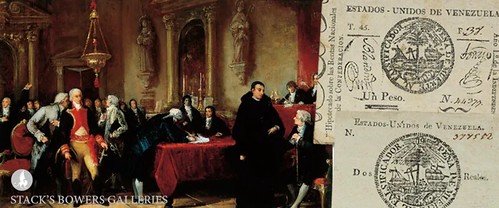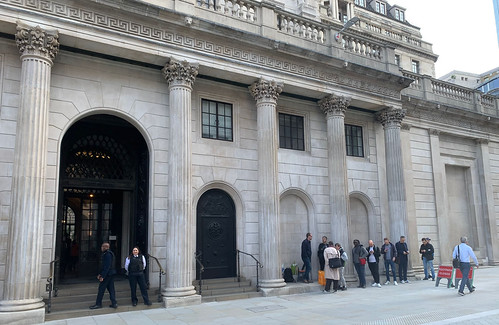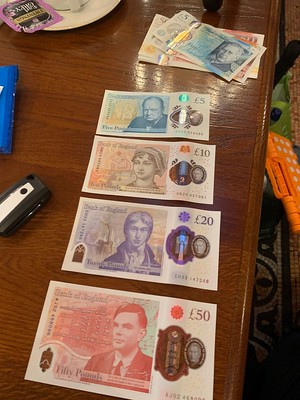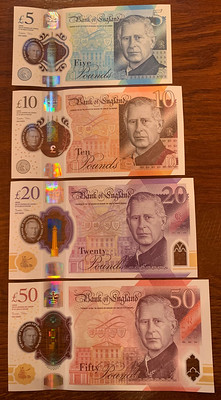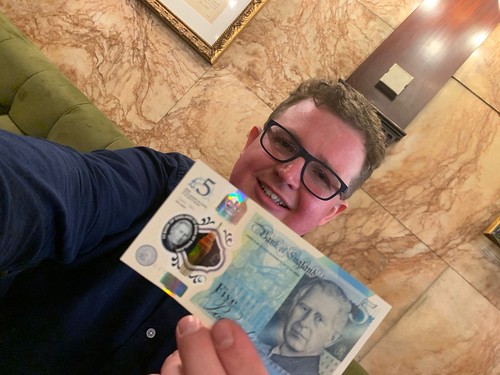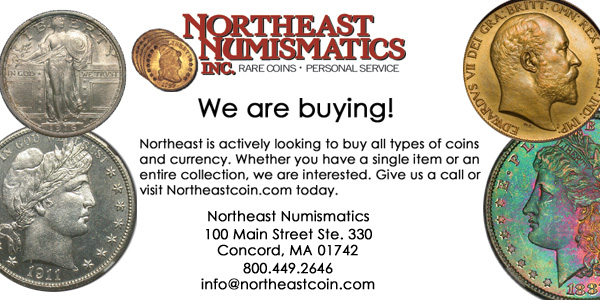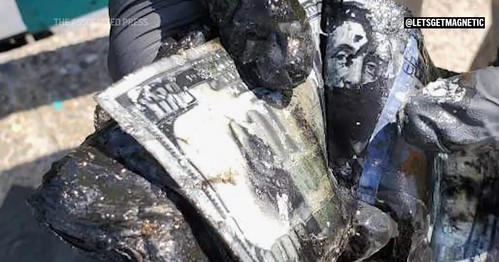
Visit our NBS Sponsors



About UsThe Numismatic Bibliomania Society is a non-profit association devoted to the study and enjoyment of numismatic literature. For more information please see our web site at coinbooks.org SubscriptionsThose wishing to become new E-Sylum subscribers (or wishing to Unsubscribe) can go to the following web page link MembershipThere is a membership application available on the web site Membership Application To join, print the application and return it with your check to the address printed on the application. Print/Digital membership is $40 to addresses in the U.S., and $60 elsewhere. A digital-only membership is available for $25. For those without web access, write to: Jeff Dickerson, Treasurer AsylumFor Asylum mailing address changes and other membership questions, contact Jeff at this email address: treasurer@coinbooks.org SubmissionsTo submit items for publication in The E-Sylum, write to the Editor at this address: whomren@gmail.com BUY THE BOOK BEFORE THE COIN |
- WAYNE'S WORDS: THE E-SYLUM JUNE 9, 2024
- MORE KOLBE & FANNING JUNE 2024 SALE SELECTIONS
- NEW BOOK: GUIDE BOOK OF U.S. PAPER MONEY 8TH ED.
- NEW BOOK: CATALOG OF FRENCH ROYAL GOLD COINS
- NEW BOOK: CORPUS OF MUGHAL COINS OF INDIA, VOL 3
- LOUIS ELIASBERG’S 70TH BIRTHDAY PARTY
- VIDEO: SO-CALLED DOLLARS
- DANSCO MORGAN MYSTERY
- NOTES FROM E-SYLUM READERS: JUNE 9, 2024
- PUBLISHER DENNIS TUCKER REFLECTS
- JOHN KRALJEVICH JOINS STACKS BOWERS
- VOCABULARY TERM: PLASTICS
- GLORIA STEWART FARLEY (1916-2006)
- THE FARLEY COINS
- REAL OR FAKE: FARLEY COINS
- A JANUS COPPER BUTTON?
- VICTOR DAVID BRENNER SCULPTURAL WORKS
- STEPHEN ALBUM RARE COINS AUCTION 49
- WAYNE'S NUMISMATIC LITERATURE JUNE 9, 2024
- ROYAL AUSTRALIAN MINT HOSTS COIN SWAP
- THE OLYMPIC GAMES THAT AREN'T RECOGNIZED
- THE FIRST PAPER MONEY OF VENEZUELA
- KING CHARLES III BANKNOTES ISSUED
- TOMMY THOMPSON IS STILL IN JAIL
- MAGNET FISHING YIELDS $100,000 IN CASH
- FEATURED WEBSITE: RHODE ISLAND CURRENCY
Content presented in The E-Sylum is not necessarily researched or independently fact-checked, and views expressed do not necessarily represent those of the Numismatic Bibliomania Society.
WAYNE'S WORDS: THE E-SYLUM JUNE 9, 2024
 New subscribers this week include:
Freeman Craig, courtesy Jeff Zarit; and
Dusan, courtesy Josef K.
Welcome aboard! We now have 7,257 subscribers.
New subscribers this week include:
Freeman Craig, courtesy Jeff Zarit; and
Dusan, courtesy Josef K.
Welcome aboard! We now have 7,257 subscribers.
Thank you for reading The E-Sylum. If you enjoy it, please send me the email addresses of friends you think may enjoy it as well and I'll send them a subscription. Contact me at whomren@gmail.com anytime regarding your subscription, or questions, comments or suggestions about our content.
This week we open with final selections from the June 15 Kolbe & Fanning numismatic literature sale, three new books, updates from the Newman Numismatic Portal, DANSCO albums, and more.
Other topics this week include collector Louis Eliasberg, So-Called Dollars, Dennis Tucker, John Kraljevich, Gloria Farley, Victor David Brenner, Tommy Thompson, an auction preview, the new King Charles III banknotes, magnet fishing, and Rhode Island currency.
To learn more about the “Loco Foco Juggernaut” shinplaster, Mehl’s Numismatic Monthly, the Royal gold coins of France, early numismatic photography, Farley coins, Calvin Westley Franklin, Don Miller, a rare numismatic auction broadside, the 1906 Olympics in Athens, and a Janus Copper button, read on. Have a great week, everyone!
Wayne Homren
Editor, The E-Sylum
MORE KOLBE & FANNING JUNE 2024 SALE SELECTIONS

Here are additional selections from the next Kolbe & Fanning numismatic literature sale, featuring books on ancient, world and U.S. numismatics. which closes next Saturday. Get your bids in - some nice material here. -Editor
We are getting close to Kolbe & Fanning Numismatic Booksellers’ next auction of rare and out-of-print numismatic literature from around the world, which will be held on Saturday, June 15. The sale includes a wide variety of books and other publications on ancient, world and U.S. numismatics, featuring material from the libraries of Wayne Homren and other consignors. Some highlights of this first sale include:
NEW BOOK: GUIDE BOOK OF U.S. PAPER MONEY 8TH ED.
Here's the Whitman press release about the new edition of the Guide Book of United States Paper Money. -Editor
Currency is King: A Guide Book of United States Paper Money
Returns to Market in New Eighth Edition
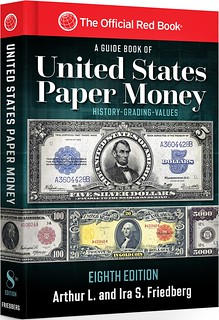 Whitman® announces the upcoming release of the newest edition of A Guide Book of United States Paper Money, by Arthur L. and Ira S. Friedberg. Paper-money collectors and American history buffs alike will appreciate the depth of the research, the fascinating narrative, and the wealth of data provided. The fully updated eighth edition builds on the critically acclaimed first through seventh editions, which have firmly established this book’s reputation as a best-selling collector’s price guide and history of U.S. federal paper currency from the Civil War era to date.
Whitman® announces the upcoming release of the newest edition of A Guide Book of United States Paper Money, by Arthur L. and Ira S. Friedberg. Paper-money collectors and American history buffs alike will appreciate the depth of the research, the fascinating narrative, and the wealth of data provided. The fully updated eighth edition builds on the critically acclaimed first through seventh editions, which have firmly established this book’s reputation as a best-selling collector’s price guide and history of U.S. federal paper currency from the Civil War era to date.
New features in this edition include the “Top 100 U.S. Paper Money Prices Realized at Auction, 2022 and 2023.” Coauthor Ira Friedberg notes that this appendix “shows how the upward movement of United States currency prices, especially for rarities and pieces in top condition, is continuing unabated—fueled not only by the entry of new collectors at all levels, but also by the realization that compared to United States coins, currency remains a relative bargain.”
The 420-page softcover A Guide Book of United States Paper Money, eighth edition, can be pre-ordered now for $24.95 online at Whitman.com and Amazon.com, and will be available July 2024 at bookstores, hobby shops, Whitman’s eBay Store, and other online retailers nationwide.
THE BOOK BAZARRE
NEW BOOK: CATALOG OF FRENCH ROYAL GOLD COINS
Editions V. Gadoury have published a two-volume work on the Royal gold coins of France. Here's the announcement. -Editor
CATALOGUE DES MONNAIES ROYALES FRANÇAISES TOME I et II
Author: Jean-Yves Kind
Publisher: BnF - Editions V. Gadoury
Year: 2024
€ 95.00
We are delighted to announce a wonderful surprise for all great enthusiasts of French numismatics.
We are honored and extremely happy to announce an exceptional collaboration with the Bibliothèque nationale de France (BnF) for the publication of the masterful work "CATALOGUE DES MONNAIES ROYALES FRANÇAISES" by Jean-Yves Kind, divided into two precious volumes.
NEW BOOK: CORPUS OF MUGHAL COINS OF INDIA, VOL 3
Volume 3 in a series of books on the Mughal Coins of India has been published. -Editor
Corpus of Mughal Coins of India, Volume 3: Silver & Gold Coins in the names of Dawar Bakhsh, Shah Jahan I, Murad Bakhsh and Shah Shuja (1627-1659)
Nilesh Gada
Dilip Rajgor
LOUIS ELIASBERG’S 70TH BIRTHDAY PARTY
The latest addition to the Newman Numismatic Portal is an interesting piece of numismatic ephemera found in the Stan Kesselman papers. Project Coordinator Len Augsburger provided the following report. -Editor
Louis Eliasberg’s 70th Birthday Party
From the Stan Kesselman papers, currently being processed by Newman Portal, comes this invitation to Louis Eliasberg’s 70th birthday party in 1966. Eliasberg, Sr. (1896-1976) is well-known as the only collector to complete the United States coin series, less a couple asterisks that nit pickers breathlessly recall at a moment’s notice. Nevertheless, the effort to recreate the legendary achievement of this Baltimore collector is now simply known as “the Eliasberg quest.”
VIDEO: SO-CALLED DOLLARS
The David Lisot Video Library on the Newman Numismatic Portal can be found at:
https://nnp.wustl.edu/library/multimediadetail/522852
We highlight one of his videos each week in The E-Sylum. Here's one from 2005 with Jeff Shevlin speaking about So-Called dollars. -Editor
DANSCO MORGAN MYSTERY
James Higby of Dixon, Illinois writes:
"Some time ago I ordered two Dansco 7171 albums for a date set of Morgans.
"One has the usual format, titled "Morgan Dollars Date Set" on cover and spine, the front pastedown having a lengthy discussion of the series, and the rear pastedown having a complete listing of all Morgans by date-and-mint, with mintages of each. The company name and address in Los Angeles are below that. This one was bought from a coin supply dealer years ago.
"The other reads "Morgan Dollar [sic] Date Set", with the same on the spine. The front pastedown is completely blank, and the rear pastedown has only the company name and address, again in Los Angeles. This one was bought recently in brand-new condition off eBay.
"Both have "7171" at the bottom of the spine.
"I'm wondering what is going on here."
NOTES FROM E-SYLUM READERS: JUNE 9, 2024
James Risk's Orders and Decorations Identified
Marc Ricard writes:
"As a collector of medals, badges, orders, and decorations, I was able to use my reference library to identify the rest of James C. List's Orders and Decorations. I hope this helps our readers and fellow collectors to appreciate the skill required to create such beautiful masterpieces."
Thank you! Here's the image again followed by Marc's identifications. E-Sylum readers are the best. -Editor
Miniature Medals in Display Box – left to right
- U.S. American Defense Service Medal
- U.S. American Campaign Medal
- U.S. European-African-Middle Eastern Campaign Medal
- U.S. Victory Medal – WWII
- U.S. Army of Occupation Medal of Germany and Japan – WWII
- U.S. Naval Reserve Medal (pre-1958)
- Italy – Knight of the Order of Saints Maurice and Lazarus
- Italy – Commander of the Order of the Crown of Italy
- Italy – Knight Commander of Grace of the Sacred Military Constantinian Order of St. George of Italy
- Vatican – Papal Lateran Cross (pre-1977)
Large Decorations on the Rectangular Blue Pad
- Top Left – Italy - Knight Commander of Grace of the Sacred Military Constantinian Order of St. George. Neck Badge (missing light blue ribbon)
- Top Right – Italy – Commander of the Crown of Italy. Neck Badge (missing red and white neck ribbon)
- Middle Right – Italy - Knight Commander of Grace of the Sacred Military Constantinian Order of St. George. (Informal Jacket Breast Pin)
- Bottom Center – Italy - Knight Commander of Grace of the Sacred Military Constantinian Order of St. George. Knight Commander Breast Star (worn on light blue Knight Sash)
To read the earlier E-Sylum article, see:
NOTES FROM E-SYLUM READERS: JUNE 2, 2024 : On James Risk's Orders and Decorations
(https://www.coinbooks.org/v27/esylum_v27n22a09.html)
Other topics this week include an uncashed one cent U.S. Treasury Check, Early Numismatic Photography, and Bank Tokens of Canada. -Editor
PUBLISHER DENNIS TUCKER REFLECTS
An article on Worthpoint interviews numismatic publisher and author Dennis Tucker, who recently retired from Whitman Publishing. Here's an excerpt - see the complete article online. -Editor
 In 2004, Tucker joined Whitman Publishing and helped lead the “modern renaissance” in numismatic publishing by issuing many titles on the coin market, banking, and US financial history. Most importantly, he helped publish twenty editions of the Red Book, known by those in the hobby as the “single most important reference work for US coinage.”
In 2004, Tucker joined Whitman Publishing and helped lead the “modern renaissance” in numismatic publishing by issuing many titles on the coin market, banking, and US financial history. Most importantly, he helped publish twenty editions of the Red Book, known by those in the hobby as the “single most important reference work for US coinage.”
Now, two decades later, Tucker’s recent retirement from that longtime role has made waves among coin collectors and dealers everywhere. Although he is no longer a publisher by title, Tucker remains very involved in the field. In addition to finishing his term aboard the Treasury Department’s Citizens Coinage Advisory Committee, Tucker is still regularly attending coin-related events, like the Central States Numismatic Society’s Convention in April, where he received the organization’s Q. David Bowers Lifetime Achievement Award. Tucker is also spending his time leading the board of directors of the nonprofit Brayhope Farm, which provides programs for autistic children and others in need.
In a recent interview with WorthPoint, Tucker reflected on his career, how he got started, and what he’s looking forward to in the numismatics hobby.
JOHN KRALJEVICH JOINS STACKS BOWERS
John Kraljevich is a good friend and prolific numismatic researcher, author and cataloguer. Long associated with Dave Bowers and Stack’s Bowers Galleries, he's now joining the firm fulltime. Here's the announcement. -Editor
Stack’s Bowers Galleries Appoints John Kraljevich Director of Numismatic Americana
Veteran Consultant to Take Full Time Role
 Stack’s Bowers Galleries proudly announces the appointment of John Kraljevich to the newly created position of Director of Numismatic Americana. Kraljevich, proprietor of John Kraljevich Americana since 2007, has been recognized as one of the most influential figures in numismatics. Coin World honored him in their inaugural list of Most Influential People in Numismatics, and he was distinguished as one of the “Top 14 Numismatists of the Century” by CoinAge magazine. In his new role, Kraljevich will devote his numismatic talents to cataloging noteworthy consignments across a wide range of specialties for Stack’s Bowers Galleries auctions. In addition, he will maintain an inventory of historical American numismatic items for retail sale and work with the firm’s collector and dealer clients.
Stack’s Bowers Galleries proudly announces the appointment of John Kraljevich to the newly created position of Director of Numismatic Americana. Kraljevich, proprietor of John Kraljevich Americana since 2007, has been recognized as one of the most influential figures in numismatics. Coin World honored him in their inaugural list of Most Influential People in Numismatics, and he was distinguished as one of the “Top 14 Numismatists of the Century” by CoinAge magazine. In his new role, Kraljevich will devote his numismatic talents to cataloging noteworthy consignments across a wide range of specialties for Stack’s Bowers Galleries auctions. In addition, he will maintain an inventory of historical American numismatic items for retail sale and work with the firm’s collector and dealer clients.
Kraljevich embarked on his full-time career in numismatics in 2000 as a cataloger and professional numismatist at Bowers and Merena Galleries of Wolfeboro, New Hampshire. His tenure at Bowers and Merena, American Numismatic Rarities, and Stack’s (where he specialized in early American coins and numismatic Americana), laid the foundation for his illustrious career. Since establishing John Kraljevich Americana, he has continued to collaborate with Stack’s Bowers Galleries as a consultant, earning acclaim for his cataloging prowess and subject matter expertise.
VOCABULARY TERM: PLASTICS
Here's another entry from Dick Johnson's Encyclopedia of Coin and Medal Terminology. -Editor
Plastics. A wide class of materials made of chemical polymers and other components, both natural and synthetic (including resins, caseins and such). Medallic items have been made of plastics – often in color (by adding a dye to the plastic) – and formed by molding or casting. The composition is more suitable for such items as sales tax tokens; these were made of plastics in America shortly after World War II. Plastics was infrequently considered as a coin or medal composition substitution in wartime.
GLORIA STEWART FARLEY (1916-2006)
E-Sylum Feature Writer and American Numismatic Biographies author Pete Smith submitted a group of three articles on "Epigraphic Explorer" Gloria Farley and the enigmatic "Farley Coins". Thanks! -Editor
This article was inspired by Julia Casey who reported on “Farley coins” found in America and attributed to Carthaginians who visited America before Columbus. Thanks also to William E. Daehn who helped with the description of Greek coinage.
THE FARLEY COINS
Here's the second of Pete Smith's three articles on "Epigraphic Explorer" Gloria Farley. This one focuses on the "coins" themselves. -Editor
In her 1993 book, In Plain Sight: Old World Records in Ancient America, Gloria Farley wrote about seven similar coins believed to be evidence of ancient visits to America before Columbus. They are named for the states where they were found.
Farley Coin: Arkansas
Jessie Ray Kelley found the coin with a metal detector in 1973 in a field near Cauthron, Arkansas, about 19 miles east of Heavenor, Oklahoma. It was sent to Boston for examination by Dr. Norman Totten, He wrote: “The coin is bronze, imperfectly round, measuring 29.5 by 25.0 millimeters in diameter, and weighing 7.63 grams. It has suffered from corrosion. There is no question of its antiquity or its authenticity. The patina on the coin and in the hole has several colors: green, oxblood, yellow and tan. Indications are that it has been buried for centuries.”
REAL OR FAKE: FARLEY COINS
Here's the last of Pete Smith's three articles on "Epigraphic Explorer" Gloria Farley. This one focuses on the nature and origin of the Farley "coins". -Editor
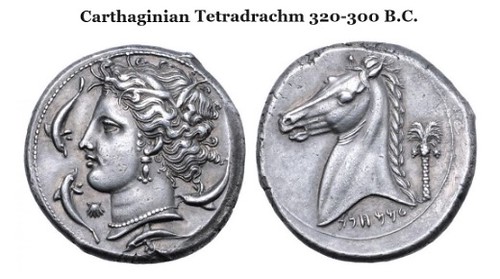
Siculo-Punic AR Obverse head of Arethusa with four dolphins around. Pearl necklace and earring with three drops. Reverse horse head and palm tree with dates. Punic legend “m mhnt” meaning “People of the Camp” indicating these were struck as payment for soldiers.
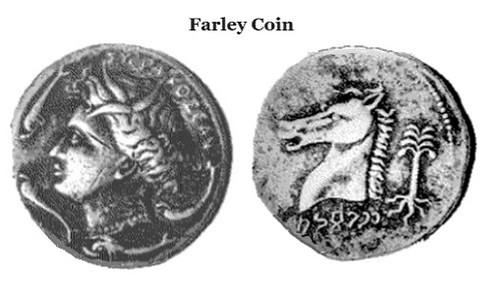
Bronze. Obverse head of Arethusa with four dolphins around. No earring. Legend: S?????S?O?. Reverse horse head and palm tree with five roots. Nonsense legend.
A JANUS COPPER BUTTON?
Here's another enigmatic piece. -Editor
Website visitor Tim Heller writes:
"I stumbled across the article you wrote about the Janus Copper. I was recently metal detecting and found what appears to be one of these coins, however it was made into a button. If you could help in any way to help me see if this could be real?"
It does look like this was made as (or made into) a button. The earlier E-Sylum article is linked below. Here is it side-by-side with the earlier Heritage auction lot image. -Editor
VICTOR DAVID BRENNER SCULPTURAL WORKS
We all know Victor David Brenner as the designer of the iconic Lincoln Cent, and for his multiple medals and plaques. But his sculptures are less common and less known. One of his sculptural works is up for sale, and it's a lovely work. -Editor
Victor David Brenner (Lithuanian/American, 1871-1924) bronze sculpture depicting a nude woman or nymph, seated on a rocky bank and looking down at a turtle, while holding the stem of a pond lily in her left hand. Signed "VD Brenner" and dated 1911, with inscription "Cast by Tiffany Studios NY" to side of base. Overall height: 16". Diameter: 11".
Biography: Victor Brenner was best known as a medallion and coin sculptor. His most famous work was the 1909 Lincoln head penny. Born in Lithuania, he trained at the Academie Julian in Paris and came to New York in 1890. He was a member of the National Sculpture Society, the National Arts Club, and the Architectural League. His work is in the collections of the Architectural League in New York, the Metropolitan Museum, the Paris Mint, and the Vienna Numismatic Society. Sources: Donald Martin Reynolds, "Masters of American Sculpture, and Peter Falk, "Who Was Who in American Art".
STEPHEN ALBUM RARE COINS AUCTION 49
Here's the press release for Stephen Album Rare Coins upcoming Auction 49. -Editor
 Stephen Album Rare Coins will hold its Auction 49 from June 13-16, 2024, at their offices in Santa Rosa, California. The auction is made up of 4075 lots of Ancient, Islamic, Indian, Chinese, and World Coins. The first two days will be in-person bidding as well as on the internet, while the third and fourth days will be internet-only sessions.
Stephen Album Rare Coins will hold its Auction 49 from June 13-16, 2024, at their offices in Santa Rosa, California. The auction is made up of 4075 lots of Ancient, Islamic, Indian, Chinese, and World Coins. The first two days will be in-person bidding as well as on the internet, while the third and fourth days will be internet-only sessions.
Featured in the auction will be the Dr. Dirk Löer Collection of Chinese Coins, the Almer H. Orr III Collection of World Coins, the Roland Dauwe Collection of the Mint of Qumm, the Howard A. Daniel III Collection of Asian Coins, the Jürgen M. Wilmes Collection of Openwork Charms, the Professor Richard Haiman Collection of World Gold, and the Charles W. Lueders III Collection of Indian and Asian Coins.
Some highlights from the sale follow:
WAYNE'S NUMISMATIC LITERATURE JUNE 9, 2024
I often have a Numismatic Diary article in this space, but with the second part of my library in Saturday's Kolbe & Fanning numismatic literature auction, I thought I'd comment on some of my consigned items. I'll miss them but here's hoping they all find good new homes. -Editor
Lot 303: Armand Champa Library Materials [Champa, Armand]. MATERIALS RELATING TO THE 1994–1995 SALES OF THE ARMAND CHAMPA LIBRARY.
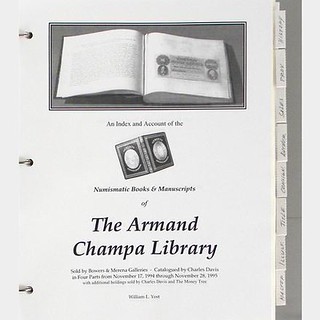 Two three-ring binders including the following: a postcard from George F. Kolbe announcing that he will be offering the Champa Library at auction; promotional materials for the November 1994 Baltimore show at which the first Champa sale was held by Bowers & Merena; the Bowers & Merena announcement of the Champa Library sale; Wayne Homren’s invoice for sets of both the softcover and hardcover catalogues; Homren’s annotated copies of the first two Champa sales, hand-priced and generally recording buyer numbers, some of which are identified; a copy of the Herman Halpern sale held March 24–25, 1995 alongside the second Champa sale; printed emails and other correspondence regarding the sales, between Homren and John J. Ford, Jr., Chris Karstedt and others; Homren’s bid card, handwritten notes, additional printed emails (Wayne was a trend-setter), Champa bookplates, lists of bidders, and so on.
Two three-ring binders including the following: a postcard from George F. Kolbe announcing that he will be offering the Champa Library at auction; promotional materials for the November 1994 Baltimore show at which the first Champa sale was held by Bowers & Merena; the Bowers & Merena announcement of the Champa Library sale; Wayne Homren’s invoice for sets of both the softcover and hardcover catalogues; Homren’s annotated copies of the first two Champa sales, hand-priced and generally recording buyer numbers, some of which are identified; a copy of the Herman Halpern sale held March 24–25, 1995 alongside the second Champa sale; printed emails and other correspondence regarding the sales, between Homren and John J. Ford, Jr., Chris Karstedt and others; Homren’s bid card, handwritten notes, additional printed emails (Wayne was a trend-setter), Champa bookplates, lists of bidders, and so on.
Also included is Bill Yost’s third draft and preliminary layout of his unpublished Index and Account of the Numismatic Books & Manuscripts of the Armand Champa Library (dated November 2, 1996). Materials generally fine or nearly so. A fascinating group of ephemeral items relating to the Armand Champa Library sales, accompanied by annotated catalogues and Homren’s notes made in preparation for, and immediately after, the sales. Included in the more ephemeral items are printed 1995 emails from the new BiblioNumis-L list being promoted by Harry Bass and Wayne Homren. Yost’s never-published work was envisioned to include a history of the collection, provenances, author and dealer index, consignor index, title index, index of illustrations, and a master index. Ex Wayne Homren Library.
ROYAL AUSTRALIAN MINT HOSTS COIN SWAP
In the news-from-down-under department, this article reports on a fun "coin swap" sponsored by the Royal Australian Mint. -Editor
This weekend, it's the Royal Australian Mint's Canberra Coin Swap which is drawing collectors, known as numismatists, to the national capital.
Attendees bring along cash and coins and swap them for circulating coloured and commemorative coins which have, until now, been uncirculated.
And with this being first time the event has been held since the pandemic, there's plenty of pent up demand.
CEO of the Royal Australian Mint Leigh Gordon said this coin swap was focused on recently-produced coins from the "last few years".
That includes those with the effigy of King Charles as well as coins commemorating the hard work of first responders including firefighters.
THE OLYMPIC GAMES THAT AREN'T RECOGNIZED
This article from the Künker auction house discusses some little-known Olympic history - a medal from Olympic games held but no longer recognizes. -Editor
In 1906, the IOC and the country of Greece invited athletes from all over the world to the Olympic Games in Athens. The Games had a lasting impact on the ceremonies surrounding the sporting showdown, even though the IOC no longer recognizes these Olympics today. A winner’s medal from the Games will be auctioned by Künker on 18 June 2024.
On 18 June 2024, the Künker auction house in Osnabrück will offer a ‘gold’ medal from the 1906 Olympics in Athens, of which probably only 78 specimens were produced. As was customary at the time, the medal is of course not made of pure gold, but gilded silver. Interestingly enough, the 1906 Olympics do not appear on the IOC’s list of Games. We explain why these Olympic Games are no longer recognized as such.
THE FIRST PAPER MONEY OF VENEZUELA
Stack's Bowers Director of Consignments & Senior Numismatist Dennis Hengeveld published an article on the earliest paper money of Venezuela. -Editor
The notaphilic history of Venezuela starts in 1811, shortly after seven (out of ten) provinces of the Spanish colonial Captaincy General of Venezuela declared their independence in July of that year. Despite being very short-lived (the First Republic of Venezuela ceased to exist in late July of 1812, just over a year after it was declared), the first independent government still managed to issue its own banknotes. These banknotes were the first printed paper money in South America and are historically extremely significant.
When it comes to the paper money issued by the First Republic of Venezuela the Pick catalog is incomplete. There were three separate emissions of paper money in 1811 and 1812. These different emissions (as listed in the Marcano catalog), can be identified by their signatures. The first was issued pursuant to the law of 27 August 1811, and consisted of 1 Peso, 2 Pesos, 4 Pesos, 8 Pesos and 16 Pesos notes (these are Pick-4 to Pick-8). Just a few months later, there was a shortage of small change, and a 2 Reales or 1/4 Peso note was introduced, which is Pick-2, issued pursuant to the law of 29 November 1811. Then, another series of 1 Peso to 16 Pesos notes were issued according to the decree of February 7, 1812. These are not separated in Pick except for the 1 Peso, which had a minor design change, and is listed as Pick-4A.
KING CHARLES III BANKNOTES ISSUED
A number of readers forwarded articles on the new King Charles III banknotes. Kavan Ratnatunga passed along these images from the Bank of England. People began queuing up at 7am. -Editor
TOMMY THOMPSON IS STILL IN JAIL
For those who've lost track, this article discusses the unusual case of S.S. Central America figure Tommy Thompson. -Editor
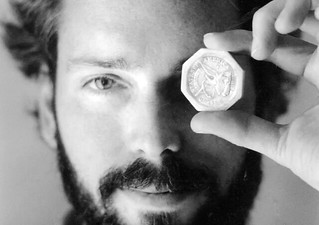 Imagine spending more than eight years in a federal prison with no right to a jury trial or a court-appointed attorney, serving an indefinite sentence. This is how the judicial civil contempt power works, and deep-sea explorer Tommy Thompson — who has been held on civil contempt charges since 2015 — has brought the issue to light.
Imagine spending more than eight years in a federal prison with no right to a jury trial or a court-appointed attorney, serving an indefinite sentence. This is how the judicial civil contempt power works, and deep-sea explorer Tommy Thompson — who has been held on civil contempt charges since 2015 — has brought the issue to light.
Thompson’s story dates back to 1989, when he made the greatest treasure find of the century: locating the SS Central America. The sunken ship was carrying the spoils of California’s gold rush when it sank in 1857, yielding a treasure worth upward of $765 million in 2024 dollars. Even more amazing than finding the wreck was Thompson’s ability to precisely salvage items in nearly 8,000 feet of water.
MAGNET FISHING YIELDS $100,000 IN CASH
Everyone likes finding treasure. These New York magnet fishers pulled up a small safe with stacks of hundred dollar bills. Thanks to Paul Horner for passing this along. -Editor
James Kane has used a powerful magnet to fish all manner of junk from New York City waterways, but he says the stacks of $100 bills he pulled from a safe were something else entirely.
The couple estimates that the safe contained as much as $100,000, though the bills were partly decomposed and stuck together.
The bills featured the 3D security ribbon that indicates recent vintage, but the safe bore no clues to a rightful owner.
FEATURED WEBSITE: RHODE ISLAND CURRENCY
This week's Featured Website is Rhode Island Currency. Found via News & Notes from the Society of Paper Money Collectors (Volume IX, Number 51, June 4, 2024).
Thank you for visiting this website. It contains various types of banknotes and other pieces of ephemera from the state of Rhode Island, from colonial days to modern times. Please do not take any banknote images for your own use. If you have any questions, please contact me at collector@ricurrency.com and I will try to help.
This website consists of two different types of pages: displays of single pieces of currency and longer form profiles of banks and other types of institutions.
For the pages where a single piece of currency is displayed, the first number is the date of issue or when it was likely printed. For obsolete notes (from 1800 to the 1860s), this will be followed by a classification number starting with “RI” from James A. Haxby’s Standard Catalog Of United States Obsolete Bank Notes (1782-1866). In most cases, this will be followed by a Durand number. Roger H. Durand’s Obsolete Notes And Scrip of Rhode Island and The Providence Plantations is a definitive and instrumental work for the study of the state’s paper issues.
For banknotes from the national banking era (1863-1935), the date of the series will be followed by the Friedberg number and then the official bank charter number.
For profile pages, I have used the original name that the institution was organized under. If such enterprises were reorganized as national banks, I will note this fact in the description but not use a separate page for the bank’s currency unless that name is completely different, ie. Rocky Point Bank becoming the National Exchange Bank of Conimicut (by the way, these names are both made up).
The value of such banknotes varies wildly. Some pieces are very common and will fetch only a few dollars on eBay.

